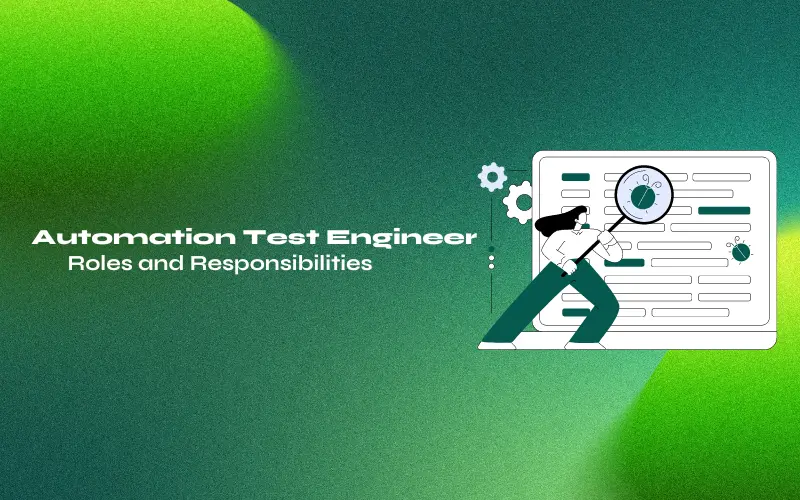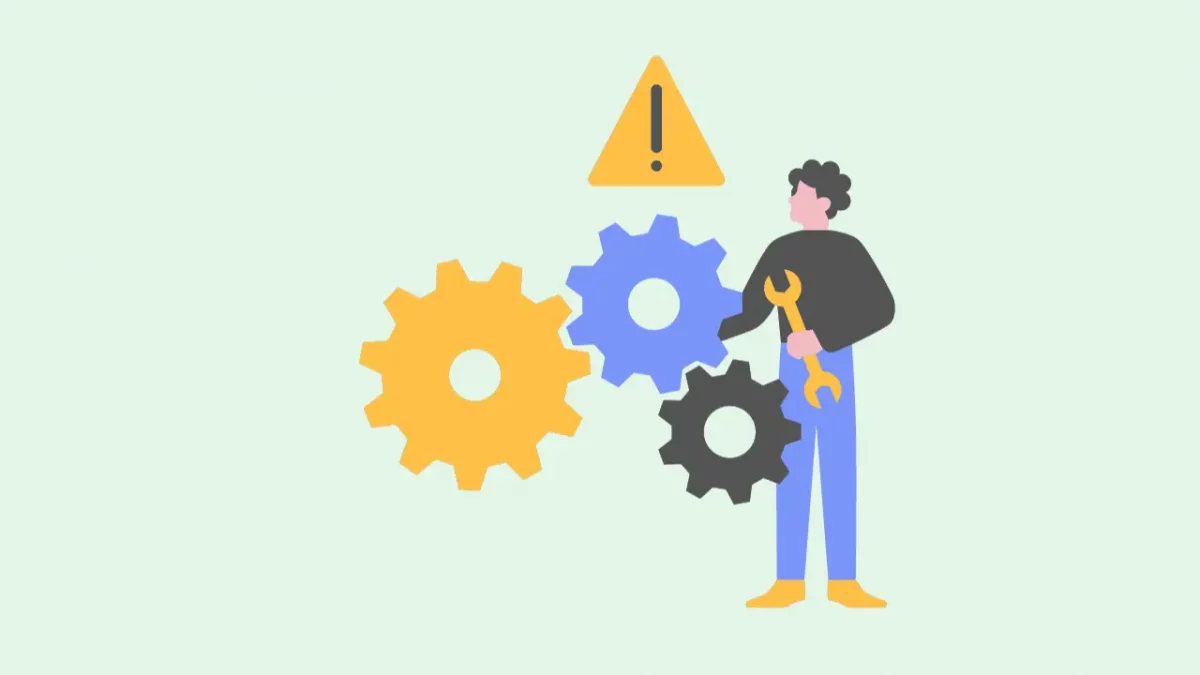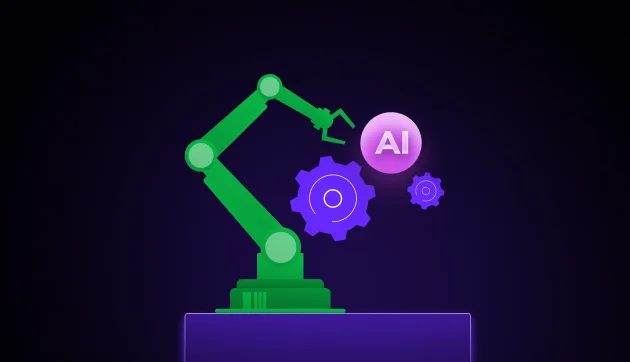
Automation Test Engineer Roles and Responsibilities in 2025
Jul 11, 2025 4 Min Read 25486 Views
(Last Updated)
A web developer builds an application to the best of their ability, but what happens after that? Who ensures the quality of the application? Does that even matter? Answers to all these questions are in the affirmative.
That’s where automation test engineers step in, as they check for the quality and reliability of software systems. There are different automation test engineer roles and responsibilities that they must follow to build scalable, high-performing applications.
In this blog, we’ll explore the key automation test engineer responsibilities and how they contribute to building reliable software systems. Automation Test Engineering is a highly demanding career, and you’ll discover the exciting opportunities that lie ahead. Let’s go through each one of them and try to understand them briefly.
Table of contents
- Roles and Responsibilities of Automation Test Engineers
- Identifying and Selecting Automation Test Cases
- Designing and Documenting the Automation Test Strategy
- Creating an Automation Test Plan
- Configuring Selenium Test Environment (STE)
- Implementing an Automation Framework
- Creating, Enhancing, Debugging, and Running Test Cases
- Monitoring the Defect Management Process
- Managing Changes and Executing Regression Tests
- Providing Solutions for Object Identity and Error Handling
- Collaborating with DevOps and Development Teams
- Interacting with Customers/Clients and Updating on Issues
- Why Become an Automation Test Engineer?
- Conclusion
- FAQs
- Q1. What are the roles and responsibilities of a test automation engineer?
- Q2. Is automation testing a good career in 2025?
- Q3. What is the future of test automation in 2025?
- Q4. What is the salary of automation testing after 2 years?
- Q5. What soft skills are important for an automation test engineer?
- Q6. Do automation test engineers need programming knowledge?
Roles and Responsibilities of Automation Test Engineers

Automation Test Engineers take on various roles and responsibilities within the software development process to build reliable software. Some of the key automation test engineer roles and responsibilities include:
1. Identifying and Selecting Automation Test Cases
The very first and most basic Automation Test Engineer roles include responsibility for identifying which test cases can be automated. They analyze the software requirements and select the appropriate test cases for automation, ensuring optimal test coverage.
2. Designing and Documenting the Automation Test Strategy
The Automation Test Engineer roles include creating a comprehensive test strategy that outlines the approach, tools, and techniques to be used for automation testing. They document this strategy to guide the testing process and ensure consistency and efficiency.
3. Creating an Automation Test Plan
Automation Test Engineers develop a detailed test plan that outlines the scope, objectives, and resources required for automation testing. This plan serves as a roadmap for executing the tests and ensures that all necessary steps are followed.
4. Configuring Selenium Test Environment (STE)
Selenium is a widely used automation testing tool. Automation Test Engineers configure the Selenium Test Environment (STE), which involves setting up the necessary infrastructure and tools to execute automated tests using Selenium.
5. Implementing an Automation Framework
Other automation test engineer roles include designing and implementing an automation framework that serves as a structured approach for organizing and executing automated tests. The framework ensures consistency, reusability, and scalability in the testing process.
Now that you’re on the way to learning the automation test engineer roles, the next step is to get into it, and thus, here’s a brief guide on How to Become a Successful QA Automation Tester
6. Creating, Enhancing, Debugging, and Running Test Cases
Automation Test Engineers are responsible for creating test cases that cover various scenarios and test conditions. They continuously enhance and debug these test cases to ensure accurate and reliable test results. Finally, they execute the test cases to validate the functionality of the software.
7. Monitoring the Defect Management Process

Automation Test Engineers closely monitor the defect management process, which involves identifying, reporting, and managing software defects. They collaborate with other team members to resolve defects and ensure that the software meets quality standards.
8. Managing Changes and Executing Regression Tests
Automation Test Engineers manage changes in the software and execute regression tests to ensure that new code changes do not impact existing functionality. They verify that the software continues to perform as expected after each modification.
9. Providing Solutions for Object Identity and Error Handling
Automation Test Engineers are responsible for providing precise solutions to problems related to object identity and error handling. They identify and address issues that may arise during the testing process, ensuring the accuracy and reliability of the results.
10. Collaborating with DevOps and Development Teams
Automation Test Engineers work closely with DevOps and development teams to integrate testing into the software delivery pipeline. They help identify issues early, align testing strategies with deployment goals, and support faster, more stable releases. Strong collaboration skills have become an essential part of automation test engineer roles, especially with the rise of continuous integration and delivery practices.
11. Interacting with Customers/Clients and Updating on Issues
Automation Test Engineers interact with customers or clients to understand their issues and requirements. They provide support and updates on the progress of testing activities, ensuring effective communication and customer satisfaction.
These responsibilities represent a broad overview of the roles performed by Automation Test Engineers. However, the field offers a wealth of opportunities for specialization, growth and building a range of skills.
Looking for a course that could help you pave the way into automation test engineering? We have one for you! Selenium Automation Testing Course course offered by GUVI is a live 5-month online class that delivers quality content and is also recognized globally.
Why Become an Automation Test Engineer?

Becoming an Automation Test Engineer offers numerous benefits and opportunities. Apart from reducing human effort, this career is driven by the demands of the industry and the constant need for quality assurance. Here are a few reasons why you should consider pursuing a career as an Automation Test Engineer:
- Creativity and Challenges: Every step of the testing process presents unique challenges and requires creative problem-solving. As an Automation Test Engineer, you will face different issues daily and be responsible for finding innovative solutions.
- Continuous Learning: Automation Testing, as an industry, is constantly undergoing changes due to advancements in technology. As an Automation Test Engineer, you’ll need to stay updated with the latest trends and learn new tools and techniques regularly.
- Rewards and Impact: By efficiently building and testing software products, Automation Test Engineers contribute not only to the success of businesses but also to the betterment of the world. Your work ensures that products meet customer requirements and specifications.
With these advantages and the growing demand for Automation Test Engineers, it is an opportune time to embark on a career in this field.
Enroll in GUVI’s Selenium Automation Testing Course to get your software testing career off to a great start. Here, you can master in-demand skills like Selenium, Python, Java, Jenkins, JMeter, API Testing, and more.
Conclusion
Automation Test Engineers play a crucial role in the software development process, ensuring the quality, reliability, and performance of software systems. Their roles and responsibilities encompass various stages of the testing process, including identifying test cases for automation, designing and executing test scripts, managing defects, and interacting with customers.
With the demand for Automation Test Engineers on the rise, pursuing a career in this field offers abundant opportunities for growth and rewards. By knowing all the necessary automation test engineer roles, staying updated with industry trends, and continuously enhancing their expertise, Automation Test Engineers can thrive in a dynamic and challenging environment.
FAQs
Ans. Some of the roles and responsibilities of a test automation engineer:
Designing and developing test automation scripts.
Using test automation guidelines.
Researching issues in software through testing.
Collaborating with QA Analysts and Software Developers to develop solutions.
Ans. Learning test automation can be the best career choice in 2025. This is because the demand for people skilled in test automation will continue to rise.
Ans. In the coming years, automation test engineering is going to lift to the next level by emphasizing real user experience to improve a product’s competitiveness.
Ans. The salary of automation testing engineer after 2 years of experience ranges from 4 LPA to 14 LPA, it also varies on factors like skills required, location, etc.
Ans. Apart from technical knowledge, soft skills like communication, problem-solving, analytical thinking, and attention to detail are important for automation test engineers. These skills help in identifying gaps, coordinating with teams, and improving overall software quality.
Ans. Yes, a strong grasp of programming languages like Java, Python, or JavaScript is often required. Automation test engineers write scripts to automate test cases, debug errors, and create testing frameworks, making coding an essential part of the role.
















Did you enjoy this article?